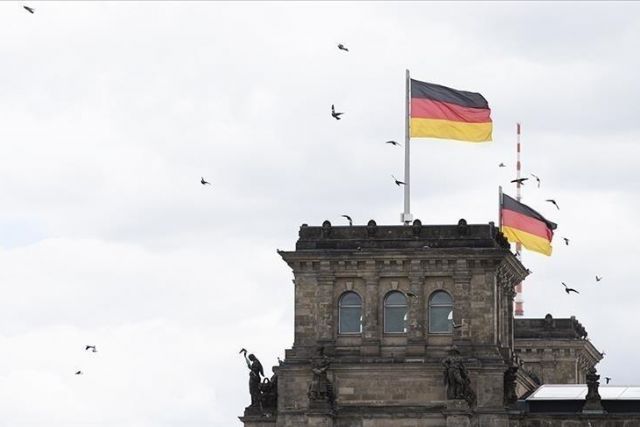Türkiye urges trust, unity with Armenia for normalization at Antalya Diplomacy Forum
Armenia's deputy speaker plans to open Türkiye-Armenia border to third-world citizens by July for greater integration

ANTALYA- Advisor to Azerbaijan's president stresses Azerbaijan's dedication to peace, regional cooperation
- Georgian deputy foreign minister backs peace talks between Armenia, Azerbaijan, highlighting Türkiye's regional significance
- EU representative praises Türkiye's peace efforts in South Caucasus
At the Antalya Diplomacy Forum on Friday, Türkiye's envoy to Armenia, Serdar Kilic, called for the need for trust-building and unity with Armenia to achieve normalization.
During the "Peace, Development, and Connectivity in the South Caucasus" panel at the 2024 Antalya Diplomacy Forum, Ambassador Serdar Kilic, Türkiye's Special Representative for Normalization with Armenia, discussed the importance of achieving full normalization between the two countries.
Our ultimate goal is to achieve full normalization (with Armenia). There are, of course, certain conditions required for this full normalization, and we must adhere to these conditions," he said.
He emphasized the need for trust-building measures in discussions with Armenia's Special Representative, Ruben Rubinyan, and stressed the significance of focusing on unity rather than division.
Kilic highlighted the longstanding conflict between Azerbaijan and Armenia, advocating for learning from past failures.
He underscored the importance of considering the welfare of the region's people for positive outcomes in the normalization process and peace talks.
Kilic cautioned against imposing unilateral solutions, emphasizing the necessity of mutual dialogue and cooperation.
He also expressed hope for the opening of the Türkiye-Armenia border, suggesting that presenting this as a precondition could create issues.
In addition, Kilic offered to meet with Rubinyan in Yerevan in the upcoming week.
‘Armenia is ready to do its best for our present and future'
Ruben Rubinyan, Armenia's Deputy Speaker of Parliament, noted ongoing peace talks with Azerbaijan, particularly regarding border delineation based on the 1991 Almaty Declaration.
He expressed Armenia's readiness for peace and clarified that they do not make regional claims within Azerbaijan.
Rubinyan highlighted agreements not to interfere in each other's internal affairs and emphasized adherence to international law principles.
He mentioned Armenia's defense improvements, stressing that these efforts do not indicate aggression.
Despite historical ties, he acknowledged challenges in relations with Türkiye.
Rubinyan announced plans to open the Türkiye-Armenia border for third-world citizens by July 2024, aiming for greater integration.
"For our present and future, Armenia is ready to do its best," he said.
He emphasized the sensitivity of normalization talks with Türkiye, acknowledging both positive and negative outcomes.
Rubinyan questioned the closure of borders, especially during prosperous times, advocating for integration.
"We should be able to open our borders not only in happy times but also in prosperous times. Now at this point, I cannot see a reason why the border between Türkiye and Armenia should be closed," he said.
He confirmed no preconditions for negotiations with Türkiye and denied discussions of freezing relations with the Eurasian Economic Union in Armenia.
‘Peace can be achieved between Baku and Yerevan'
Hikmet Haciyev, Advisor to the President of Azerbaijan, said that the war in Karabakh has ended for his country, stating that peace and regional cooperation are on their agenda.
Noting that they have presented five principles to Armenia for peace, Haciyev said this reflects his country's willingness and determination to achieve peace.
He emphasized peace negotiations will take place between Baku and Yerevan, not in foreign places like Paris or Brussels.
Referring to the article in the Armenian Constitution regarding the unification of Karabakh with Armenia, Haciyev said they expect an appropriate explanation on this matter.
He said they do not intend to interfere in Armenia's internal affairs, stating that some articles in the Armenian Constitution could affect Azerbaijan's territorial integrity.
Emphasizing that their country has collaborations in terms of energy in the South Caucasus region, Haciyev said they will take steps in the energy field in the Black Sea and Caspian regions.
He also added that they want to facilitate access to Nakhchivan and that Armenia would benefit from connectivity.
‘There is no alternative to peace in our region'
Georgian Deputy Foreign Minister Lasha Darsalia reminded that the European Union (EU) granted candidate status to Georgia in December 2023, stating that their country has a chance for EU and Euro-Atlantic integration.
Expressing hope for the success of peace talks between Armenia and Azerbaijan, Darsalia emphasized their support for the process affecting the region and other actors.
Emphasizing the value they place on both neighboring countries, Darsalia said, "There is no alternative to peace in our region."
Pointing out that their partnerships with Azerbaijan, Türkiye, and Armenia continue, Darsalia said he believes they can achieve full cooperation in the South Caucasus region.
Darsalia appreciated Türkiye's role in the region, underscoring that he wants to underline the role taken by the EU and the US.
Türkiye's Role in the South Caucasus
Toivo Klaar, the EU Special Representative for the South Caucasus, drew attention to the need for a sustainable agreement for peace to be established, saying, "When we talk about the situation between Armenia and Azerbaijan, a scenario is possible where all the Caucasus will be revived."
He stressed the necessity of reaching an agreement where everyone wins through cooperation between the two sides.
"We cannot underestimate the significant role of Türkiye here. (Türkiye) is a neighbor of Georgia and Armenia and has very special relations with Azerbaijan. Türkiye also has a very unique opportunity right now because it can make this peace process much richer."
Klaar also said that the peace process between Azerbaijan and Armenia will shape the cooperation agenda in the South Caucasus, stating, "We will have reached a civilian and unarmed population, and in this way, we will actually show our commitment to peace."
He emphasized the financial importance of achieving tranquility in the region, stating that this would contribute to trade between Europe and China.
*Writing by Gizem Nisa Cebi in Istanbul





